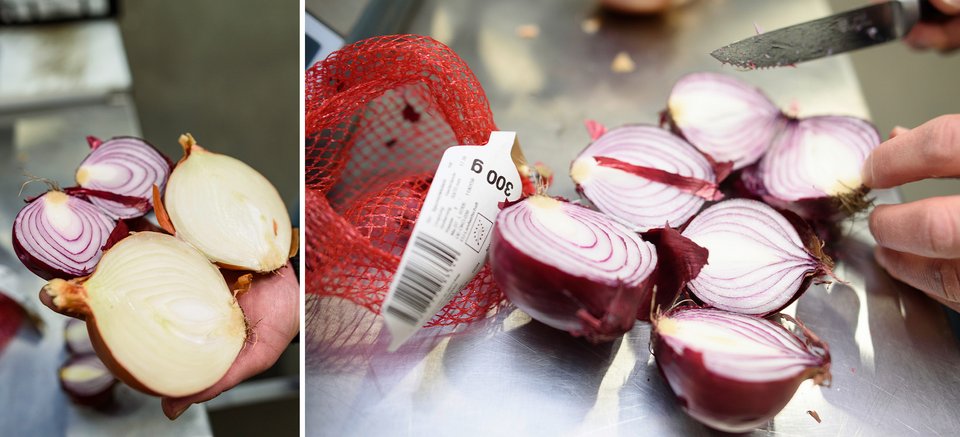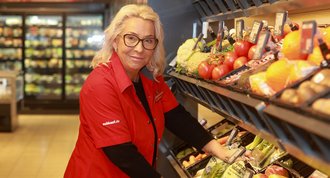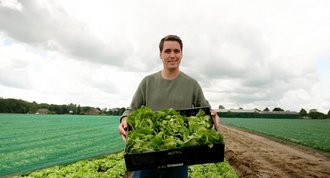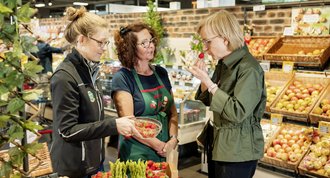
Frost and heavy rain in spring, heatwaves in summer - 2022 was a string of extreme weather events. It was the warmest year in Europe since weather records began. The Mediterranean region in particular was too warm - even into the winter months. one spoke to Markus Bobenhausen, Head of Ultrafresh 1, about mandarins in autumn and why the onion will soon be coming from Egypt.
one: At the beginning of January, the EU climate information service "Copernicus" took stock and described 2022 as the warmest year since weather records began. Is this noticeable in the fruit and vegetables product group?
Markus Bobenhausen: Last year was difficult. It brought challenges for global fruit and vegetable production for almost the entire year. In the Mediterranean region in particular, the drought in summer and, at times, unusually heavy rainfall led to crop failures or changes in growth that we will feel in the long term.
One example is the mandarin harvest. The warm autumn in Spain meant that the fruit was unstable in terms of shelf life. At the same time, however, it was still too warm here in Germany, which meant that consumers did not yet have a great appetite for mandarins. Overall, this resulted in a situation in which the quantities met a sales market that was not yet ready for them. It was a challenge for everyone involved in the supply chain, as well as for the markets, to manage the products in such a way that we could offer them to our customers at the optimum time and quality. Checking the calibre using a template is part of the incoming goods inspection I Photo: Achim Bachhausen
Checking the calibre using a template is part of the incoming goods inspection I Photo: Achim Bachhausen
„The capricious weather is currently causing problems for lettuce, soft fruit, peppers and tomatoes in the Mediterranean region.“

one: Which types of fruit and vegetables are particularly affected by the capricious weather?
Markus Bobenhausen: In the Mediterranean region, lettuce, soft fruit, peppers and tomatoes are currently affected. Iceberg lettuce is experiencing yield losses due to the start of winter. In Spain, strawberry production is stagnating with night-time temperatures between two and four degrees Celsius. These are just two current examples. More varieties will be added over the course of the spring, as the weather in Germany is also causing quality losses for some vegetables, such as onions. But we only really notice this when the season changes.
one: Does that mean that the weather also affects the harvest of regional products?
Markus Bobenhausen: Exactly. Onions are a good example here - a typical regional crop, but one that had very poor growing conditions last year. This in turn means that the shelf life is shorter. The onions - a typical product for storage - germinate more quickly. As a result, the onion season in Germany will end earlier than usual and we will have to switch to production from overseas and Egypt to cover demand until the new season in Germany.

„We must continue to focus on short supply chains and fast goods handling.“

one: How quickly can Purchasing react to these developments and ensure the availability of goods?
Markus Bobenhausen: We receive weekly reports from our quality assurance department on site. These are employees from quality management who are travelling to the countries of origin for us in production and provide us with up-to-date information from there. This means we are always up to date and can react early to impending failures, for example. We have already done this with onions, for example, and ensured that we can bridge the shortened shelf life of domestic onions with goods from Egypt and New Zealand from April/May. We will then no longer be able to offer regional produce, so it is important to inform our markets about weather-related difficulties so that they can explain this to their customers.
one: If the shelf life fluctuates with the quality - what other adjustments could you make apart from the country of origin?
Markus Bobenhausen: The first lever is logistics. If necessary, we shorten lorry journey times by using two drivers. Other levers are our fruit and vegetable platforms. We use them to ensure that our stocks are distributed on a daily basis and can implement further measures with a view to quality. This is becoming increasingly important in these times, when it is becoming more and more challenging to manage deliveries well. This is why we also communicate this information to the stores via the regional category managers in our weekly reports.
one: What about alternatives from the greenhouses? It should be possible to control production here regardless of the weather.
Markus Bobenhausen: That's true. But we have the problem of energy costs here, which cause production costs to rise enormously in greenhouses in the form of high electricity and gas prices. The products then simply become too expensive. We have seen that some consumers are no longer willing to pay these prices. We are looking for alternative growing regions that have the right natural conditions for these products in order to supply the markets with good quality produce. Our top priority is to buy the best quality for our customers at competitive prices.
one: Mr Bobenhausen, thank you very much for talking to us.




